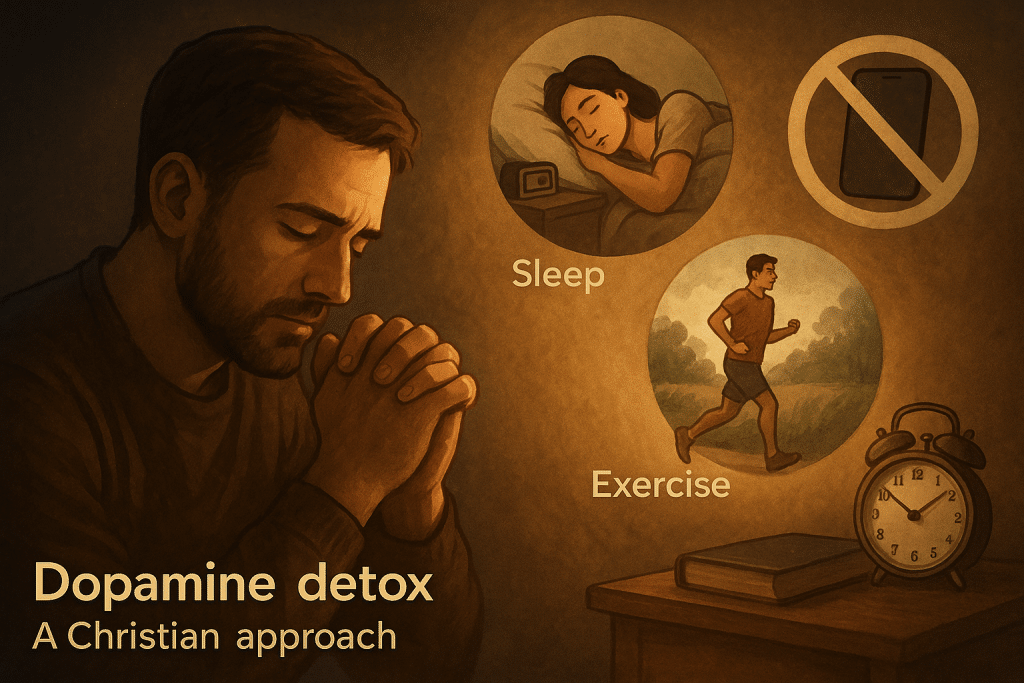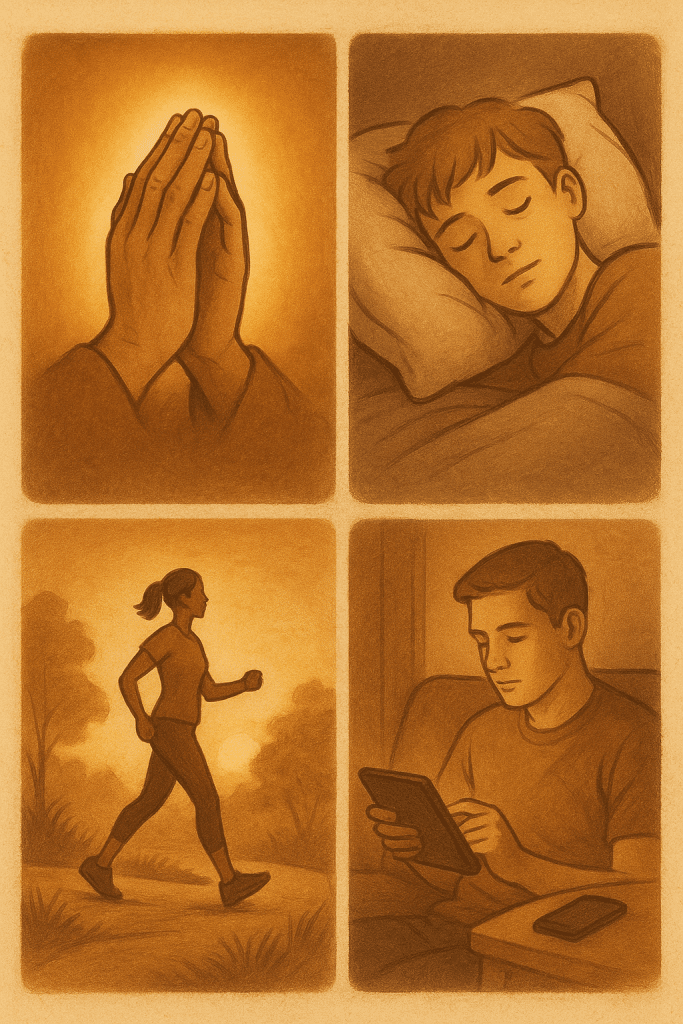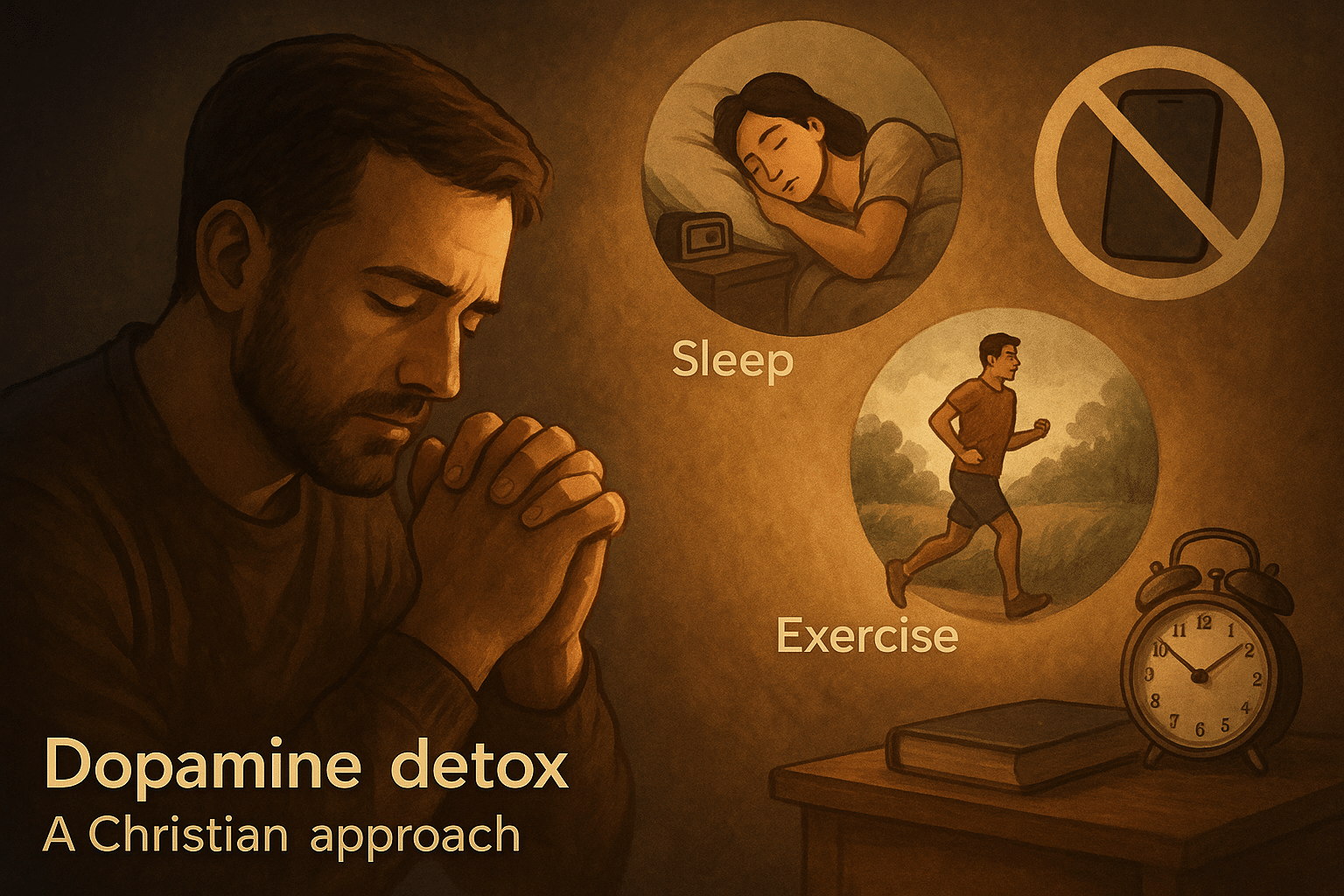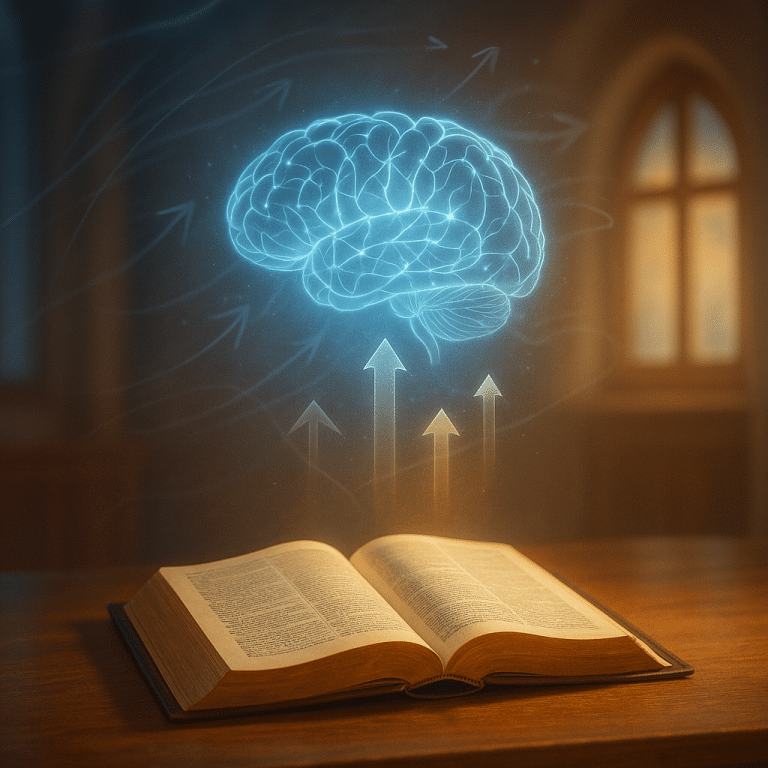Dopamine Detox Christian Approach: Science & Discipleship
Estimated reading time: 6 minutes
Introduction
Modern life bombards us with instant rewards, and our attention pays the price. Therefore, we need a plan that restores clarity, strengthens self-control, and deepens our walk with Jesus. This guide presents a dopamine detox christian approach that blends biblical wisdom with neuroscience so you can reset your habits without legalism and recover joy in Christ.
Crucially, the research paper behind this article explains how repeated “easy dopamine” from feeds, games, and compulsive scrolling dulls normal pleasures while pushing us toward more stimulation (see pages 1–2). It also shows why strategic abstinence lets the nervous system rebalance, so ordinary life feels rewarding again (pages 2–4). {index=1}
Why dopamine overload harms mind and spirit
First, consider the brain’s reward system. When you chase constant novelty, your brain compensates by lowering sensitivity; consequently, you need bigger hits to feel the same pleasure. The research summary describes this “pleasure–pain” see‑saw and the drift into a dopamine deficit that follows heavy use (pages 1–2).
Spiritually, that pattern turns good gifts into masters. Scripture calls us to refuse slavery to any appetite (1 Corinthians 6:12), yet push notifications and autoplay often direct our days. For a practical faith lens on the problem of “dopamine media,” see this clear pastoral piece from Crosswalk. Likewise, Robert Mixa’s reflection on fasting from digital excess shows how silence and prayer rebuild attention to God (Word on Fire).
Moreover, the medical side agrees that the goal is not to eliminate pleasure; instead, we limit compulsive cues and strengthen wise routines. For a helpful caution against extreme interpretations, review the plain‑language explanation from Harvard Health. In short, Christians can embrace healthy joy while pruning habits that crowd out prayer, relationships, and purposeful work.
How the brain resets: physiology and faith
According to the paper, many patients improve after a focused season of abstinence, often around 30 days, because the brain recalibrates receptor sensitivity and homeostasis (pages 3–4). That timeline matches clinical insights popularized by addiction psychiatrist Anna Lembke and summarized in the research (pages 4–5). In parallel, a 2024 literature review notes that structured breaks can support mental clarity, reduce anxiety, and restore motivation (Cureus / NIH PMC).
Biblically, fasting trains desire. Therefore, a modest digital fast can mirror food fasting: we say “no” to lesser pleasures so we can say a louder “yes” to God (Isaiah 58; Matthew 6). As the paper emphasizes, Christians should avoid extremes and pursue holistic care—scripture, community, therapy, and medical support when indicated (pages 6–7).

Dopamine detox Christian approach: a balanced plan
Practically, we start with honest prayer and inventory. Next, we identify our worst triggers—pornography, endless feeds, excessive streaming, impulsive shopping, or comfort eating—and set a realistic abstinence window. The paper recommends pairing “self‑binding” tactics with positive replacements: blockers, device‑free zones, and scheduled offline activities alongside worship, exercise, and relationships (pages 8–10).
To fill the space with life, build a simple daily “rule.” For instance, open the day with Scripture before screens; then practice five minutes of breath prayer at mid‑day; finally, end with reflection and gratitude. If anxiety rises while you unplug, practice grounding and breath skills from these step‑by‑step guides: deep breathing exercises, Christian meditation for anxiety, and prayer for anxiety. Additionally, if rumination pulls you back to screens, this field‑tested plan on how to stop overthinking will help. This helps with a dopamine detox Christian approach.
Importantly, do not fight alone. Invite a trusted friend for accountability; consider a counselor for trauma, ADHD, or mood issues; and use spiritual community for encouragement. For a concise overview of why short, regular fasts beat perfectionism, read the original psychiatrist’s “dopamine fasting 2.0” framework summarized in the report (pages 3–4) and clarified in public guidance (Harvard Health).
Step‑by‑step routine for 30 days
Week 1 — Remove triggers and reset cues. Therefore, uninstall problem apps, move the console to a closet, and silence non‑essential notifications. Create device‑free zones at meals, devotions, and bedtime. Then add brief, healthy dopamine: a brisk walk, two minutes of gratitude, and ten minutes of reading. For porn, add filtering and a same‑day check‑in with an accountability partner. The research paper calls this “self‑binding” and shows why friction reduces impulses (pages 8–9).
Week 2 — Replace and stabilize. Next, schedule nourishing alternatives at the exact times you used to scroll. Choose worship, conversation, service, or a hobby that uses your hands. Meanwhile, practice relaxation skills when boredom bites. If panic flares, use this rapid plan for stopping a panic attack. Furthermore, review progress nightly and celebrate obedience, not perfection.
Week 3 — Deepen attention. Consequently, extend quiet Bible reading, add a weekly digital Sabbath, and keep one long walk outdoors. Track sleep and mood; many people notice calmer focus by this point from christian dopamine fasting, which aligns with the outcomes summarized in the literature review (Cureus / NIH PMC) and in the case example on pages 4–5 of the paper.
Week 4 — Reintroduce with boundaries. If an activity is morally harmful (e.g., pornography), keep it out entirely. Otherwise, re‑add limited, purposeful use with timers and clear hours. If cravings spike, return to the full fast for a few days. Finally, use Scripture memory and these curated Bible verses for anxiety to renew your mind and maintain peace.
Amazon product recommendations
Tools help you build friction and add healthy alternatives. Choose one from each category and apply it during the first week. Then keep what serves your calling.
- Habit formation book: Atomic Habits by James Clear — use environment design and habit stacking to cement your new rhythms.
- Neuroscience + recovery book: Dopamine Nation by Anna Lembke — understand the pleasure‑pain balance and why short abstinence windows work.
- Time‑lock container: A simple “phone safe” limits impulsive checks. See options here: time‑lock containers.
- Blue‑light blocking glasses: Reduce evening screen strain to protect sleep while you taper: blue‑light glasses.
- Analog alarm clock: Keep your phone out of the bedroom and end doom‑scrolling: analog alarm clocks.
Additionally, consider a flexible blocker or smart plug for “shut‑off” windows. Combine these tools with pastoral care and, when necessary, professional treatment. For context and cautions, review the concise overview from Harvard Health and the clinical framing discussed in the research summary (pages 6–7).

Conclusion
Ultimately, this dopamine detox christian approach invites you to prune distractions so you can enjoy God and people again. Therefore, take a short season to remove high‑dopamine habits, replace them with soul‑giving practices, and reintroduce tech on purpose. The attached research underlines why this rhythm restores both the nervous system and daily discipleship (pages 3–5, 8–12).
If you want a deeper dive into practical skills while you reset, continue with these cornerstone guides on breathing, meditation, prayer, overthinking, and Scripture for anxiety. Finally, hold grace for your limits and walk this path with friends; progress compounds.







